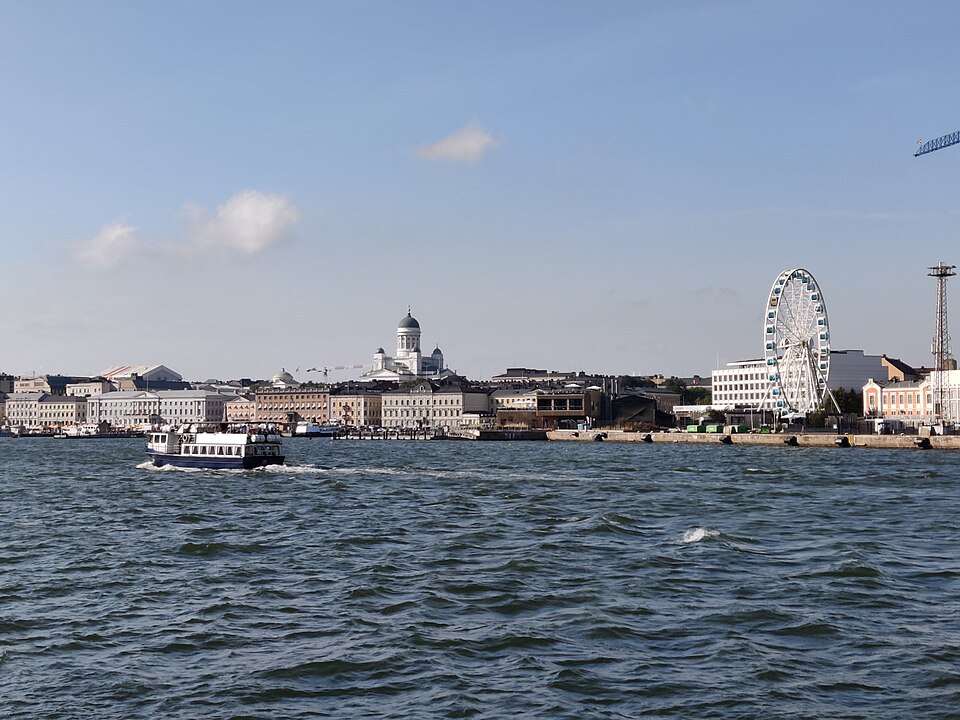
🌍 The World Since the Helsinki Final Act of 1975: A Legacy Disrespected?
By Ahti Tolvanen
Signed on August 1st, 1975 by 33 European nations, The USA and Canada, the Helsinki Final Act aimed to ease Cold War tensions and promote cooperation in politics, economics, and human rights. It upheld principles like sovereign equality, territorial integrity, peaceful dispute resolution, and respect for human rights.
On July 31st, I joined Bruce Knotts, director of the NGO Committee Disarmament, Peace and Human Rights at the UN, at Finlandia Hall to mark the Act’s 50th anniversary. Despite the gravity of today’s crises—nuclear instability, environmental collapse, and rising authoritarianism—the official program largely ignored them. Civil society voices were few, and many signatories now support Ukraine against Russia while backing Israel’s assault on Gaza.
President Trump’s threats to annex Canada and Greenland were absent from the agenda, as were serious discussions on climate. Military spending continues to soar, with billions funnelled into environmentally destructive buildup. NATO’s emissions now exceed those of half the world’s nations yet remain exempt from climate treaties.
🧬 Humanity’s Expanding Footprint Since 1975, the global population has doubled. Industrial agriculture, deforestation, and fossil fuel use have driven biodiversity loss and ecological overshoot—hallmarks of the Anthropocene.
💰 World GDP Growth
- 1975: ~$5.5 trillion USD
- 2025: >$113 trillion USD
- 2055 (projected): ~$240 trillion USD While lifting billions from poverty, this growth has intensified resource depletion and emissions.
🛡️ NATO’s Expansion and Contradictions NATO’s eastward expansion post-Cold War, including Finland and Sweden, has heightened tensions with Russia, culminating in the 2022 invasion of Ukraine. Yet many NATO states simultaneously support Israel’s campaign in Gaza, raising questions about selective human rights enforcement. Bruce Knotts, in a lead-up event, urged an end to arms trade with Israel to prevent genocide—his message sidelined by OSCE hosts.
💣 Military Spending and Emissions NATO’s defence budgets exceed $1.3 trillion annually. The environmental toll is immense, yet military emissions remain unregulated. At the lead-up panel, I highlighted this blind spot.
🧨 Nuclear Treaties and Instability With key treaties like INF and New START suspended, the risk of a new arms race looms. Hypersonic weapons and AI targeting systems add to the peril. Kati Juva of IPPNW warned of global nuclear winter even from limited exchange. She also described how Finland had, in recent disarmament talks, opposed mention of nuclear weapons as a health threat citing “ulterior motives” of peace activists.
🧭 Eroding Global Norms The OSCE, born of the Helsinki Process, struggles amid rising authoritarianism. NATO’s internal contradictions—especially under Trump—have weakened the rules-based order. Sovereignty and peaceful resolution are increasingly undermined.
🕊️ Reaffirming Helsinki As the climate collapses and inequality deepens, Helsinki’s principles—dialogue, cooperation, human rights—are more vital than ever. Yet democracy’s decline in Russia, the USA, Hungary, and Turkey was left off the agenda. Russia and the U.S., founders of the Act, were notably absent and left uncalled to account.
Finland, as OSCE chair, focused solely on Russia’s violations, ignoring broader environmental failures and its own hardline asylum stance. It has closed its eastern border entirely, violating the Geneva Refugee Convention. A Romanian UNHCR observer in Belarus described dire conditions for asylum seekers pushed back at the EU frontier.
Reviving the Helsinki Spirit requires confronting contradictions and prioritizing diplomacy over domination. My country, Canada too was absent from the formal agenda, though still seen by Finns as a peace advocate. We could have done more to be heard.
The Helsinki vision remains unfinished. Today’s world is more dangerous than in 1975—and the Finnish Chairpersonship’s avoidance of key issues risks letting that vision slip away.